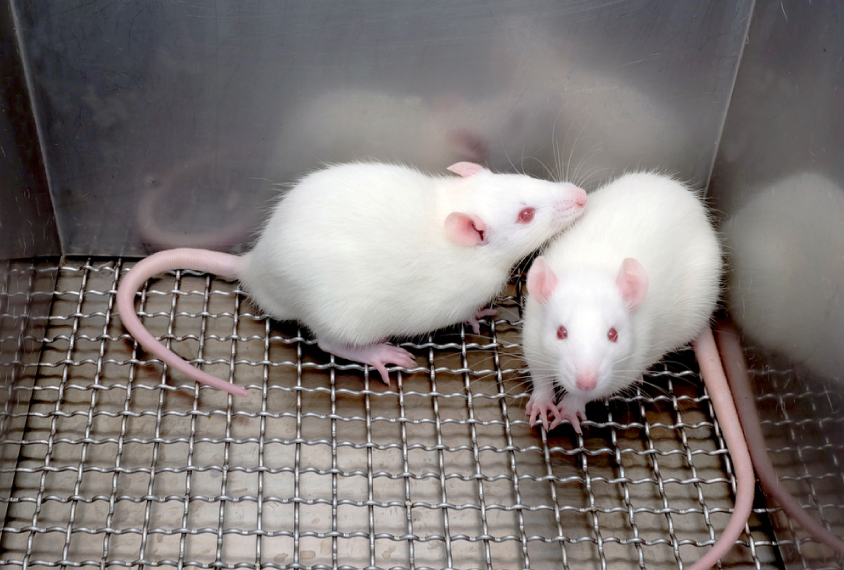
Marijuana ingredient sparks social behavior in epilepsy model
Cannabidiol alleviates seizures and restores social ability in a mouse model of Dravet syndrome by soothing overexcitement in the brain.
Cannabidiol, an active ingredient in marijuana, alleviates seizures and reverses autism-like social behavior in a mouse model of Dravet syndrome, a severe form of epilepsy.
Cannabidiol acts through a protein that soothes the overexcited brain, according to unpublished results presented yesterday at the 2016 Society for Neuroscience annual meeting in San Diego.
A drug based on cannabidiol has shown promise in clinical trials for people with Dravet syndrome. Produced by GW Pharmaceuticals in the United Kingdom, it has been shown to decrease seizure frequency by 39 percent in people with the syndrome.
There are anecdotal reports that cannabidiol also curbs violent outbursts and repetitive behaviors in children with Dravet or related conditions, but researchers are only beginning to back up these claims.
The new study looked at mice carrying a mutation in SCN1A, which encodes a sodium channel. In people, mutations in SCN1A cause Dravet syndrome and have also been linked to autism. Mice with an SCN1A mutation have severe seizures and show cognitive and social problems similar to those seen in people with Dravet syndrome.
The researchers found that cannabidiol alleviates anxiety and improves social behavior in these mice.
“For the first time in Dravet syndrome, we are showing the effect of cannabidiol on autism-like social behaviors. We’re also showing how this works,” says Josh Kaplan, a postdoctoral researcher in William Catterall’s lab at the University of Washington in Seattle.
Mellow mice:
Catterall’s team injected the GW Pharmaceuticals compound into mice, at a dose roughly equivalent to the dose used in the company’s clinical trials.
The treatment decreases the severity and length of seizures, stemming the risk of sudden death, the researchers found. However, it does not alter the overall frequency of seizures.
The researchers then assessed the mice in a series of tests for social behavior. The drug increases the mice’s interest in an unfamiliar mouse, and decreases the amount of time they spend in a secluded part of their cage.
The treatment also eases a kind of social behavior called defensive escape, Kaplan says. “The [untreated] mice will interact, but then they’ll dart away and huddle in the corner. Cannabidiol reduces that social anxiety.”
In neurons extracted from the mouse dentate gyrus, where seizures are easily sparked by overactive signaling, cannabidiol increases the activity of neurons that calm the brain.
The compound appears to act through a receptor called GPR55, which helps neurons detect changes in the surrounding environment and recalibrate their activity accordingly.
“There are probably other mechanisms at play here, but this seems to be the biggest one,” Kaplan says.
His team plans to study the effects of cannabidiol on the animals’ learning and memory.
For more reports from the 2016 Society for Neuroscience annual meeting, please click here.
Recommended reading

Too much or too little brain synchrony may underlie autism subtypes

Developmental delay patterns differ with diagnosis; and more

Split gene therapy delivers promise in mice modeling Dravet syndrome
Explore more from The Transmitter

During decision-making, brain shows multiple distinct subtypes of activity

Basic pain research ‘is not working’: Q&A with Steven Prescott and Stéphanie Ratté
